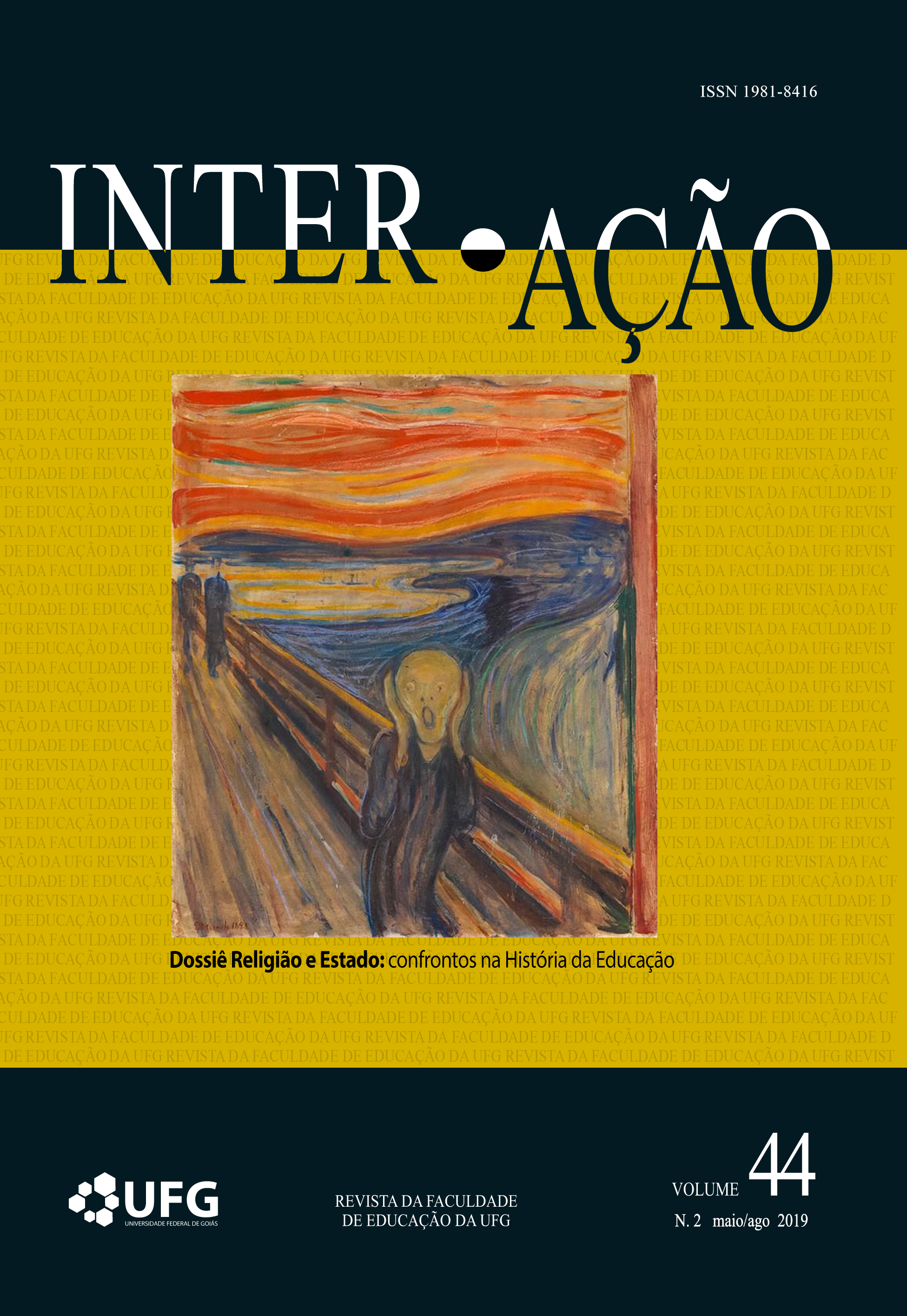PAIS NOSSOS QUE ESTÃO NOS CÉUS... E TAMBÉM NA UNIVERSIDADE: O QUE PENSAM OS UNIVERSITÁRIOS?
DOI:
https://doi.org/10.5216/ia.v44i2.55545Abstract
Este artigo objetiva identificar as representações dos estudantes universitários do Curso de Letras sobre a relação entre Estado e Religião, tomando como pano de fundo a proposta de criação da Capela Ecumênica no Campus Uvaranas, aprovada pelo Conselho Universitário da Universidade Estadual de Ponta Grossa e a prática de orações no interior das escolas públicas brasileiras a fim de perceber as posições dos estudantes de Letras. Apoia-se em dados oriundos de questionários aplicados as cinco turmas do curso de Licenciatura em Letras e no conceito de representação de Roger Chartier e Pierre Bourdieu. Ao cruzar as variáveis de idade, de sexo e de religião com as opiniões expressas pelos acadêmicos sobre ter capela em instituição de ensino superior pública e prática de orações em escolas públicas é possível sustentar que os estudantes apresentam uma fronteira tênue entre Religião e Estado.
Downloads
Downloads
Published
How to Cite
Issue
Section
License
Inter-Ação uses the Creative Commons Attribution 4.0 License for Open Access Journals (Open Archives Initiative - OAI) as the basis for the transfer of rights. Open access means making documents available on the Internet free of charge, so that users can read, download, copy, distribute, print, search, or link to the full text of documents, process them for indexing, use them as input data for software programs, or use them for any other lawful purpose, without financial, legal, or technical barriers.
Authors publishing in this journal agree to the following conditions:
1) Authors retain copyright and grant the journal the right of first publication, with the work simultaneously licensed under the Creative Commons Attribution License, which permits redistribution of the work with attribution and first publication in this journal.
2) Authors are permitted to enter into additional, separate agreements for non-exclusive distribution of the version of the work published in this journal (e.g., for publication in an institutional repository or as a book chapter), with attribution and first publication in this journal.
3) Authors are permitted and encouraged to publish and distribute their work online (e.g. in institutional repositories or on their home page) at any time before or during the editorial process, as this may generate productive changes as well as increase the impact and citation of the published work.















